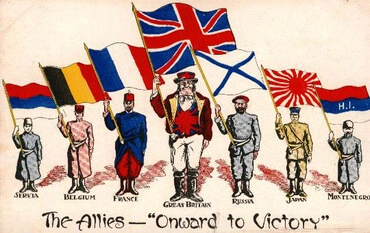1
Wijders geschiedde des HEEREN woord tot mij, zeggende:
2
Mensenkind! zet uw aangezicht tegen Gog, het land van Magog, den hoofdvorst van Mesech en Tubal; en profeteer tegen hem,
3
En zeg: Zo zegt de Heere Heere: Zie, Ik wil aan u, o Gog, gij hoofdvorst van Mesech en Tubal!
4
En Ik zal u omwenden, en haken in uw kaken leggen, en Ik zal u uitvoeren, mitsgaders uw ganse heir, paarden en ruiteren, die altemaal volkomen wel gekleed zijn, een grote vergadering, met rondas en schild, die altemaal zwaarden handelen;
5
Perzen, Moren en Puteers met hen, die altemaal schild en helm voeren;
6
Gomer en al zijn benden, en het huis van Togarma, aan de zijden van het noorden, en al zijn benden; vele volken met u.
7
Zijt bereid en maakt u gereed, gij en uw ganse vergadering, die tot u vergaderd zijn; en wees gij hun tot een wacht.
8
Na vele dagen zult gij bezocht worden; in het laatste der jaren zult gij komen in het land, dat wedergebracht is van het zwaard, dat vergaderd is uit vele volken, op de bergen Israels, die steeds tot verwoesting geweest zijn; als hetzelve land uit de volken zal uitgevoerd zijn, en zij allemaal zeker zullen wonen.
9
Dan zult gij optrekken, gij zult aankomen als een onstuimige verwoesting, gij zult zijn als een wolk, om het land te bedekken; gij en al uw benden, en vele volken met u.
10
Alzo zegt de Heere Heere: Te dien dage zal het ook geschieden, dat er raadslagen in uw hart zullen opkomen, en gij zult een kwade gedachte denken,
11
En zult zeggen: Ik zal optrekken naar dat dorpland, ik zal komen tot degenen, die in rust zijn, die zeker wonen, die altemaal wonen zonder muur, en grendel noch deuren hebben.
12
Om buit te buiten, en om roof te roven; om uw hand te wenden tegen de woeste plaatsen, die nu bewoond zijn, en tegen een volk, dat uit de heidenen verzameld is, dat vee en have verkregen heeft, wonende in het midden des lands.
13
Scheba, en Dedan, en de kooplieden van Tarsis, en alle hun jonge leeuwen zullen tot u zeggen: Komt gij, om buit te buiten? hebt gij uw vergadering vergaderd, om roof te roven? om zilver en goud weg te voeren, om vee en have weg te nemen, om een groten buit te buiten?
14
Daarom profeteer, o mensenkind! en zeg tot Gog: Zo zegt de Heere Heere: Zult gij het, te dien dage, als Mijn volk Israel zeker woont, niet gewaar worden?
15
Gij zult dan komen uit uw plaats, uit de zijden van het noorden, gij en vele volken met u; die altemaal op paarden zullen rijden, een grote vergadering, en een machtig heir;
16
En gij zult optrekken tegen Mijn volk Israel, als een wolk, om het land te bedekken; in het laatste der dagen zal het geschieden; dan zal Ik u aanbrengen tegen Mijn land, opdat de heidenen Mij kennen, als Ik aan u, o Gog! voor hun ogen zal geheiligd worden.
17
Zo zegt de Heere Heere: Zijt gij die, van welken Ik in verleden dagen gesproken heb, door den dienst Mijner knechten, de profeten Israels, die in die dagen geprofeteerd hebben, jaren lang, dat Ik u tegen hen zou aanbrengen?
18
Maar het zal geschieden te dien dage, ten dage als Gog tegen het land Israels zal aankomen, spreekt de Heere Heere, dat Mijn grimmigheid in Mijn neus zal opkomen.
19
Want Ik heb gesproken in Mijn ijver, in het vuur Mijner verbolgenheid: Zo er niet, te dien dage, een groot beven zal zijn in het land Israels!
20
Zodat van Mijn aangezicht beven zullen de vissen der zee, en het gevogelte des hemels, en het gedierte des velds, en al het kruipend gedierte, dat op het aardrijk kruipt, en alle mensen, die op den aardbodem zijn; en de bergen zullen nedergeworpen worden, en de steile plaatsen zullen nedervallen, en alle muren zullen ter aarde nedervallen.
21
Want Ik zal het zwaard over hem roepen op al Mijn bergen, spreekt de Heere Heere; het zwaard van een ieder zal tegen zijn broeder zijn.
22
En Ik zal met hem rechten, door pestilentie en door bloed; en Ik zal een overstelpenden plasregen, en grote hagelstenen, vuur en zwavel regenen op hem, en op zijn benden, en op de vele volken, die met hem zullen zijn.
23
Alzo zal Ik Mij groot maken, en Mij heiligen, en bekend worden voor de ogen van vele heidenen; en zij zullen weten, dat Ik de HEERE ben.







